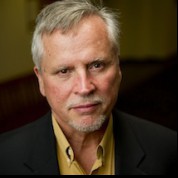WS202
Making International Intellectual Property and Trade Regimes Work to Address the Health Response to COVID-19
Contact Person : Chaaim Pachanee, chaaim@ihpp.thaigov.netThe world was unprepared for COVID-19 despite other coronavirus outbreaks and despite multiple warnings from WHO and others. Although there was initial sharing of research among scientists and an unleashing of significant public, charitable, and private resources to expand medical supplies and to develop new medicines, vaccines, and diagnostics, the status quo of commercial control by the biopharmaceutical industry continues. Existing rules allowing private entities to monopolize the development, pricing, supply, and distribution of essential medical products have not been altered. And, the determination of rich countries to monopolize initial supplies remains unchanged. Inadequate global coordination mechanisms have left the equitable distribution of COVID-19 health products disarrayed. In place of open science and coordinated clinical trials, rational expansion of manufacturing capacity, and equitable global access, we have needlessly high prices, inadequate supplies, and nationalistic hoarding by the Global North. Despite these structural impediments to an effective, solidarity-based response to this unprecedented global pandemic, many countries are making best efforts to implement their own supply and access action plans. In addition, we have witnessed a number of global actions responding to the commercialization of the COVID-19 response, for instance:
- The Solidarity Call to Action, initiated by Costa Rica and now the COVID-19 Technology Access Pool (C-TAP)[1], which is the platform for sharing intellectual property on COVID-19 treatments, vaccines and health technologies.
- Resolution of the 73rd World Health Assembly on COVID-19 response[2], which calls for the efforts to control the COVID-19 pandemic, and for equitable access to and fair distribution of all essential health technologies and products to combat the virus.
- Medicine Patent Pool (MPP)has temporarily expanded its mandate to COVID-19 health technologies where licensing could facilitate innovation and access[3].
- Multiple partners created the Access to COVID-19 Tools Accelerator, which has committed to the repurposing or development of novel vaccines, therapeutics, and diagnostics and equitable global access to those tools, including in low- and middle-income countries.[4]
- Gavi launched a COVAX Facility and a Gavi Advance Market Commitment for COVID-19 Vaccines (GAVI Covax AMC), a new financing instrument aimed at incentivising vaccine manufacturers to produce sufficient quantities of eventual COVID-19 vaccines, and to ensure access for developing countries[5].
In addition, regional mechanisms are in place, such as in ASEAN where Ministers endorsed a setting up of a regional fund to respond to the COVID-19 pandemic[6]. At the country level, some countries issued compulsory licensing as part of COVID-19 response. For examples, Israel issued a compulsory license to import generic versions of lopinavir/ ritonavir (or Kaletra) while legislatures in Germany, Canada, Chile, and Ecuador laid the legal groundwork for the issuance of compulsory licenses to address COVID-19[7].
The commissioned paper will act as input to the webinar discussion in which the commissioned expert(s) is expected to provide recommendation based on the review government and international mechanisms to mitigate the false start in the medical response to the pandemic.
[1] https://www.who.int/emergencies/diseases/novel-coronavirus-2019/global-research-on-novel-coronavirus-2019-ncov/covid-19-technology-access-pool
[2] https://apps.who.int/gb/ebwha/pdf_files/WHA73/A73_R1-en.pdf
[3] https://medicinespatentpool.org/news-publications-post/the-medicines-patent-pool-and-unitaid-respond-to-access-efforts-for-covid-19-treatments-and-technologies/
[4] https://www.who.int/initiatives/act-accelerator
[5] https://www.gavi.org/news/media-room/gavi-launches-innovative-financing-mechanism-access-covid-19-vaccines
[6] https://thediplomat.com/2020/04/asean-ministers-endorse-new-covid-19-response-fund/
[7] http://www.jogh.org/documents/issue202001/jogh-10-010358.htm
To discuss effective measures to better address health preparedness and the development, supply and equitable distribution of health products needed to address COVID-19 and future public health emergencies.
PANELISTS
Biosketch
Brook K. Baker
Greg Perry
Marie-Paule Kieny
Ronald Labonté
Suresh Jadhav
Yuan Qiong HU
Presentation
Baker_PPT.pdf
HU_PPT.pdf
Jadhav_PPT.pdf
Kieny_PPT.pdf






